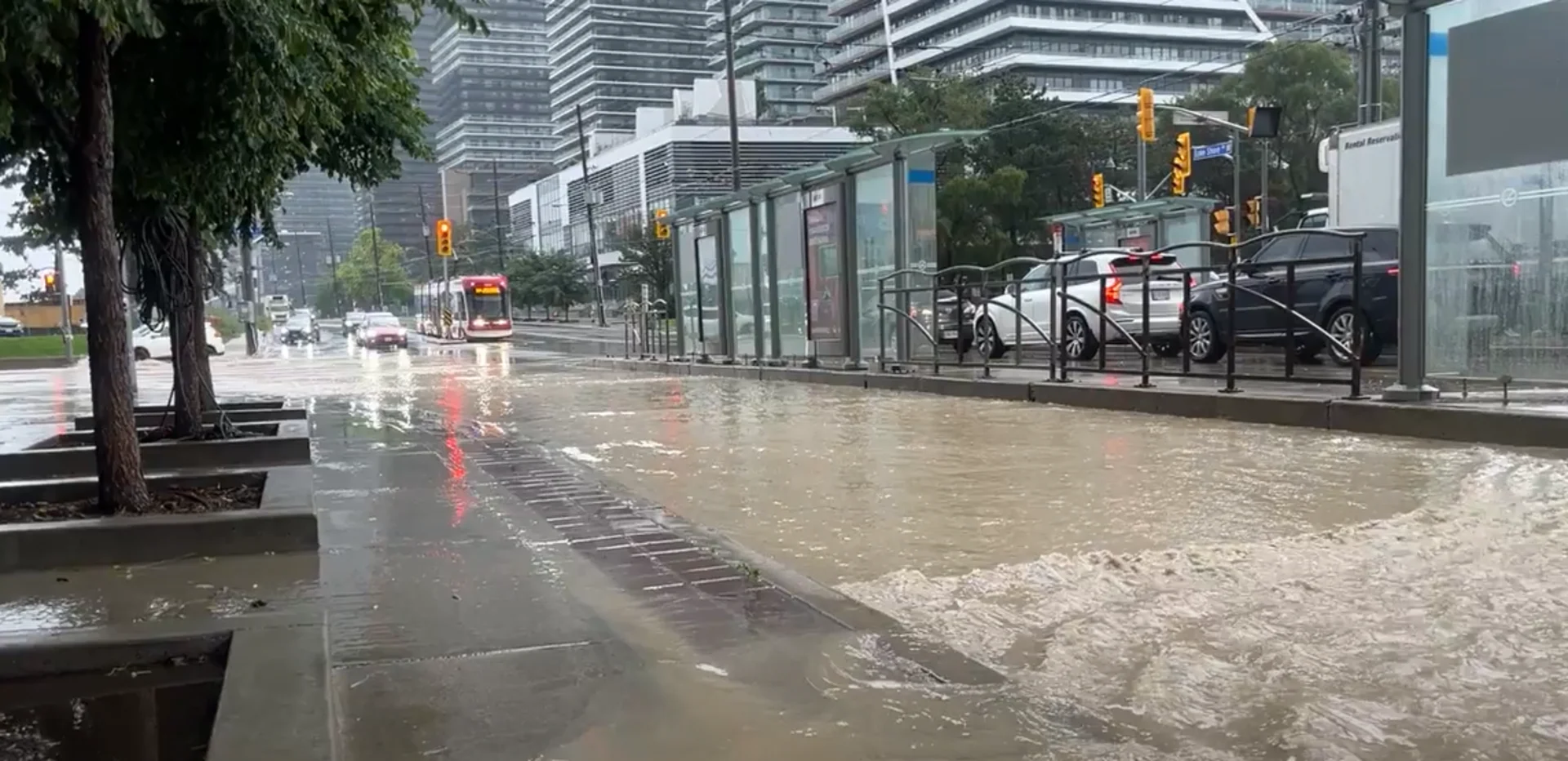
When it rains, it pours: Toronto sees its wettest summer on record
Toronto has seen multiple rainfall records fall recently, and now its wettest summer ever is an additional feather in its meteorological cap
You may have noticed all of the rain in Toronto, Ont., this summer, resulting in multiple flooding events, travel disruptions and other inconveniences for any planned outings.
It's not just your imagination. It has been quite rainy in Canada's most populated city this summer, leading to numerous records being set, including its wettest day and July ever.
RELATED: Toronto officially records its rainiest month ever
And it's been quite a destructive season. The July 16 flooding in Toronto and southern Ontario resulted in more than $940 million worth of insured damage, the Insurance Bureau of Canada (IBC) announced Monday.
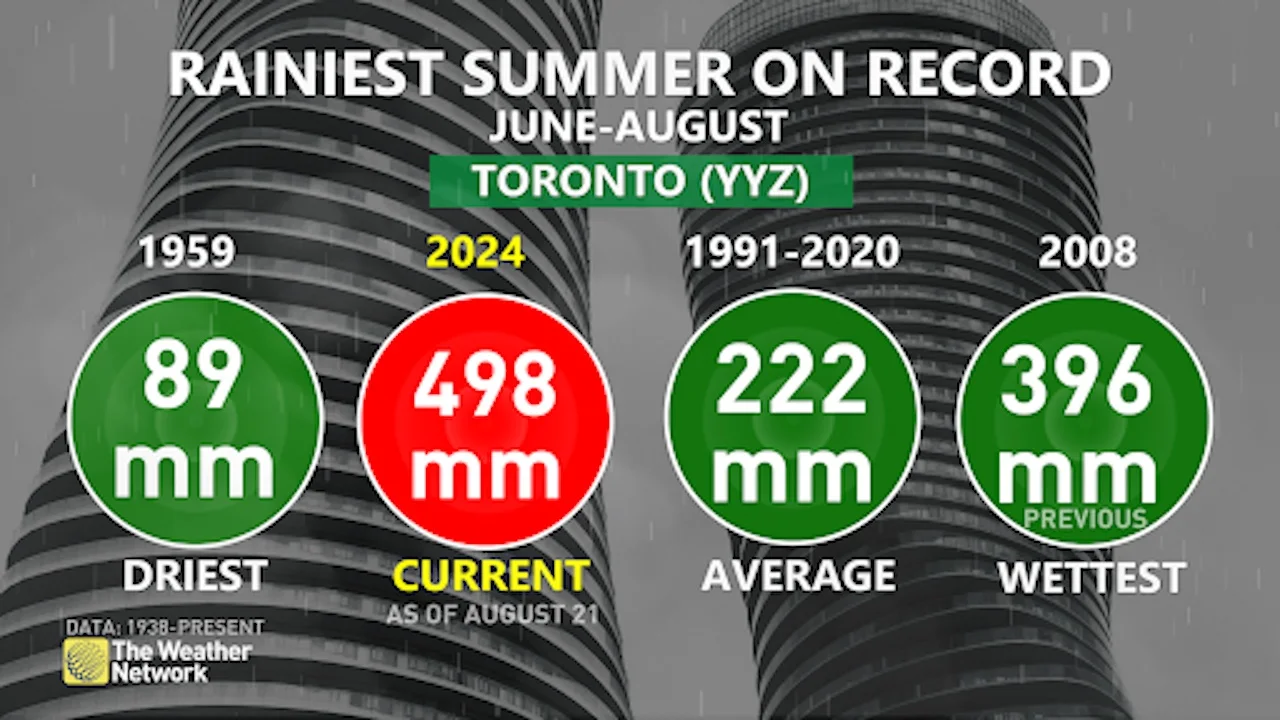
Well, now you can add two more records to Toronto's impressive rainfall accolades: Its wettest August and summer ever.
For the former record, Toronto's Pearson International Airport has documented 168.5 mm of rainfall this month so far, compared to the previous high of 163.5 mm that was set in August 1968.
And now we can say the summer of 2024 is its wettest on record.
As of Aug. 21, Pearson has recorded a whopping 498 mm of rainfall, far surpassing its previous high of 396.8 mm that was documented from June to August in 2008.
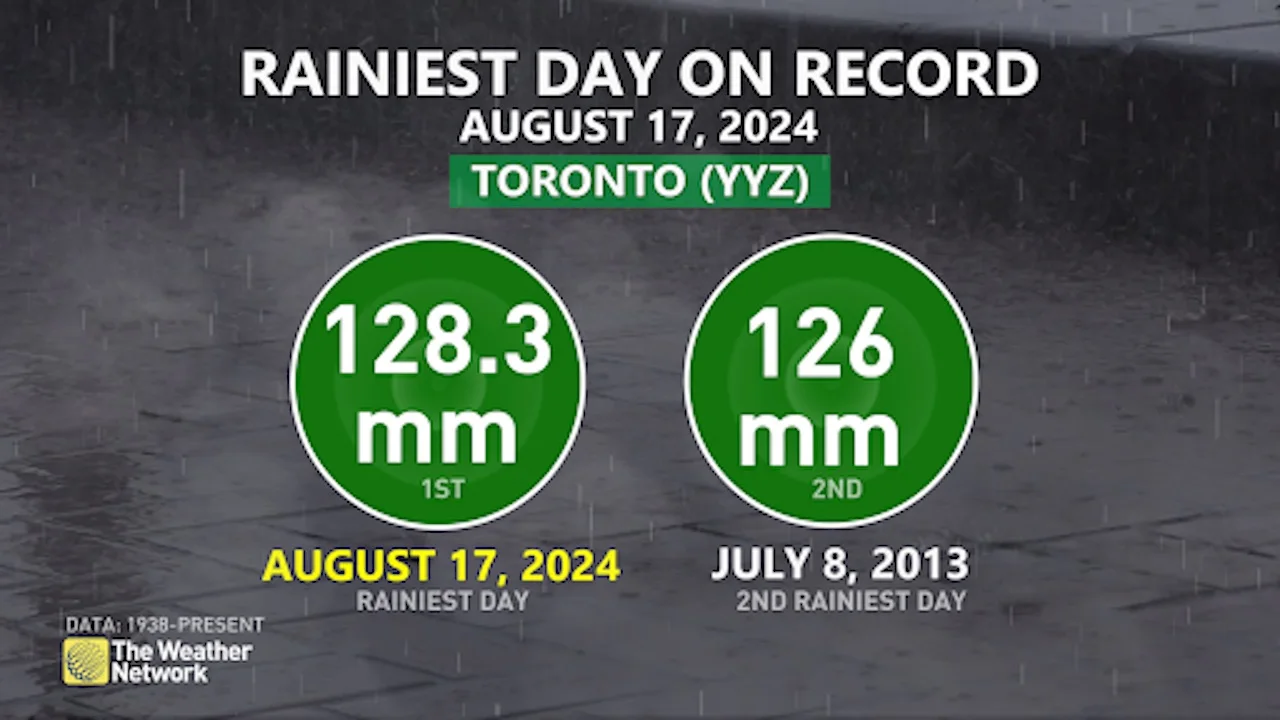
On Saturday, Aug. 17, Pearson airport reported 128.3 mm of rain, making it the rainiest day ever recorded there.
In July, slow-moving, scattered storms at the end of it provided just enough rain for Pearson airport to record its rainiest month on record -- beating the previous record by two millimetres.
Record summer of rain yields multiple flooding events
The airport's top and sixth wettest days on record occurred this year, on Aug. 17 and July 16, respectively.
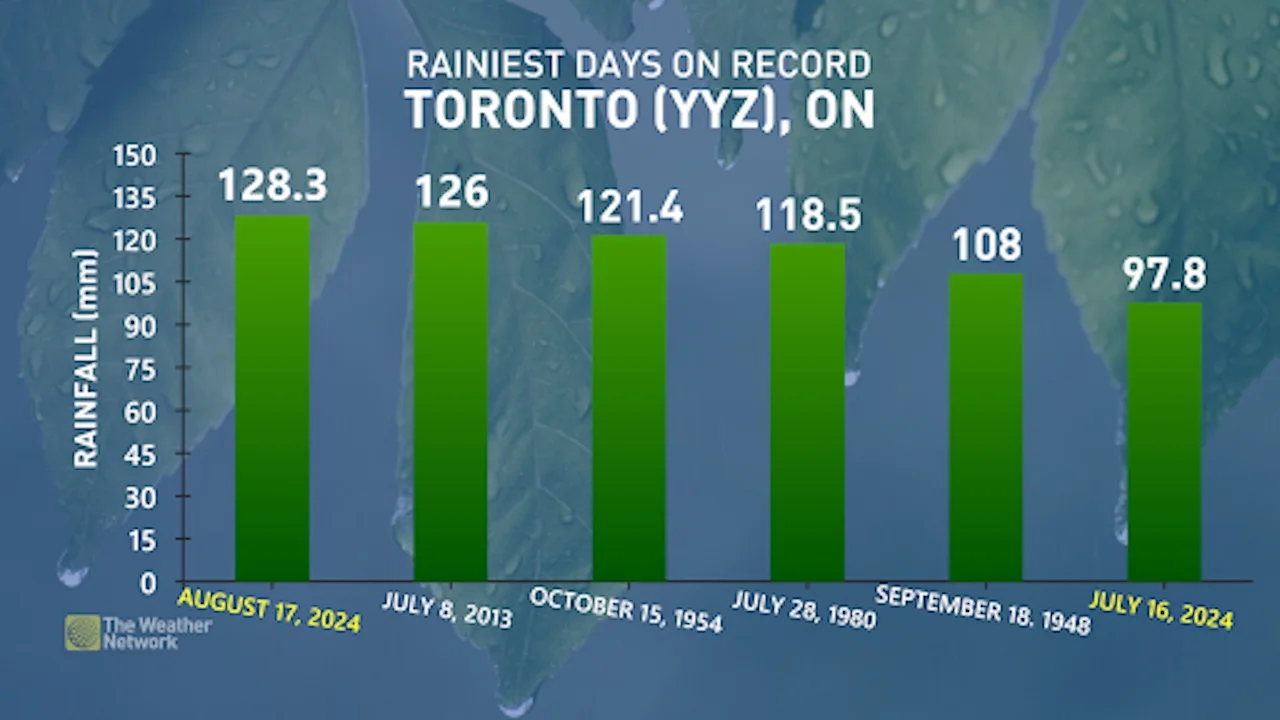
Both of those events led to significant flooding in the Greater Toronto Area (GTA), especially the latter.
On the morning of July 16, Pearson airport picked up a whopping 97.8 mm of rain –– more than a month's worth. The 1991-2020 climate normals for July rainfall in Toronto is 74 mm.
As a result, severe flooding ensued, especially along the Don Valley Parkway and Lake Shore Boulevard.
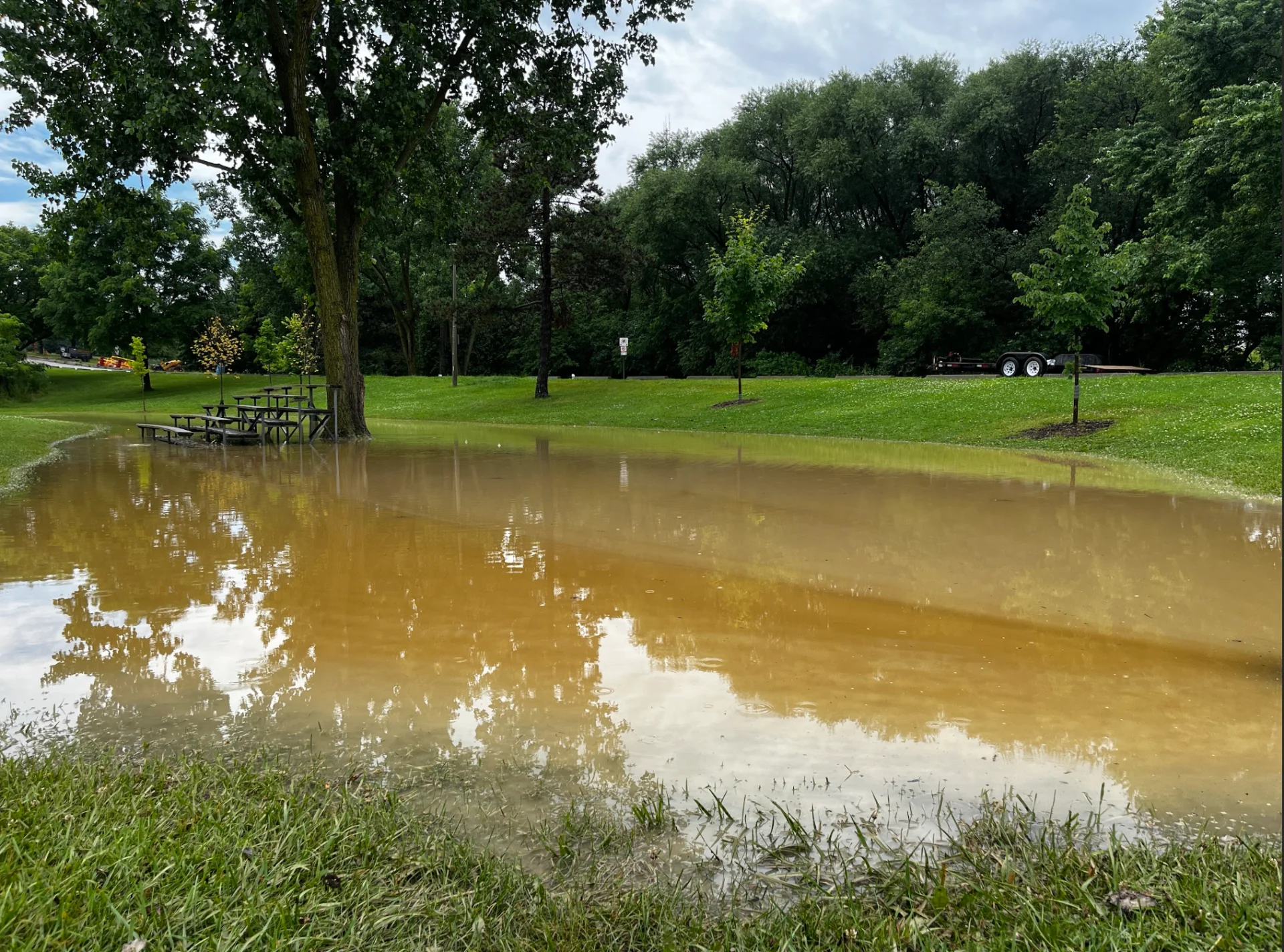
(Tyler Hamilton/The Weather Network)
While Toronto's aging infrastructure and removal of natural barriers played a large role in the major flooding, what led to the bouts of excessive rainfall can be blamed on significant moisture anomalies with unusually high amounts of waper vapor in the atmosphere.
WATCH: July floods in the GTA cost nearly $1B, August floods may have been worse
Thumbnail courtesy of Tyler Hamilton, a meteorologist at The Weather Network.
Follow Nathan Howes on X, formerly known as Twitter.











